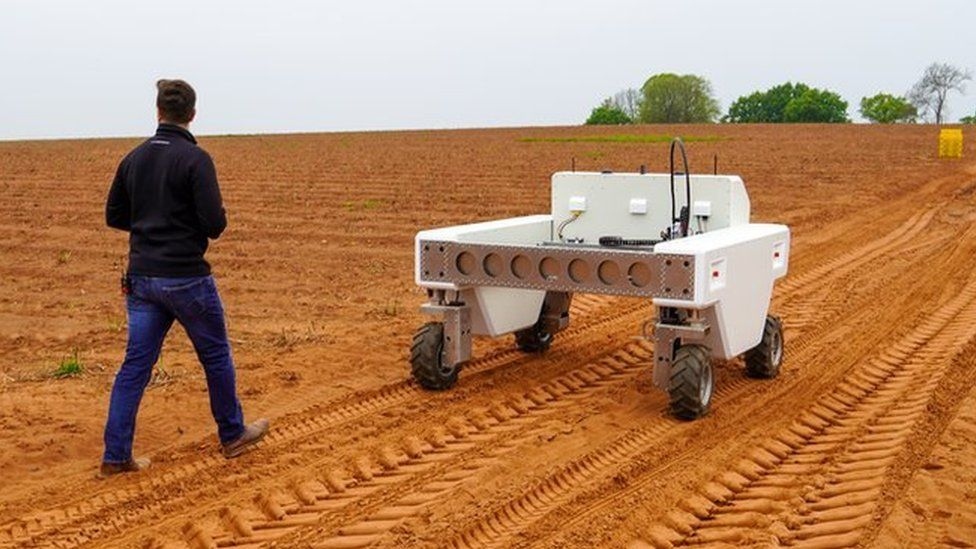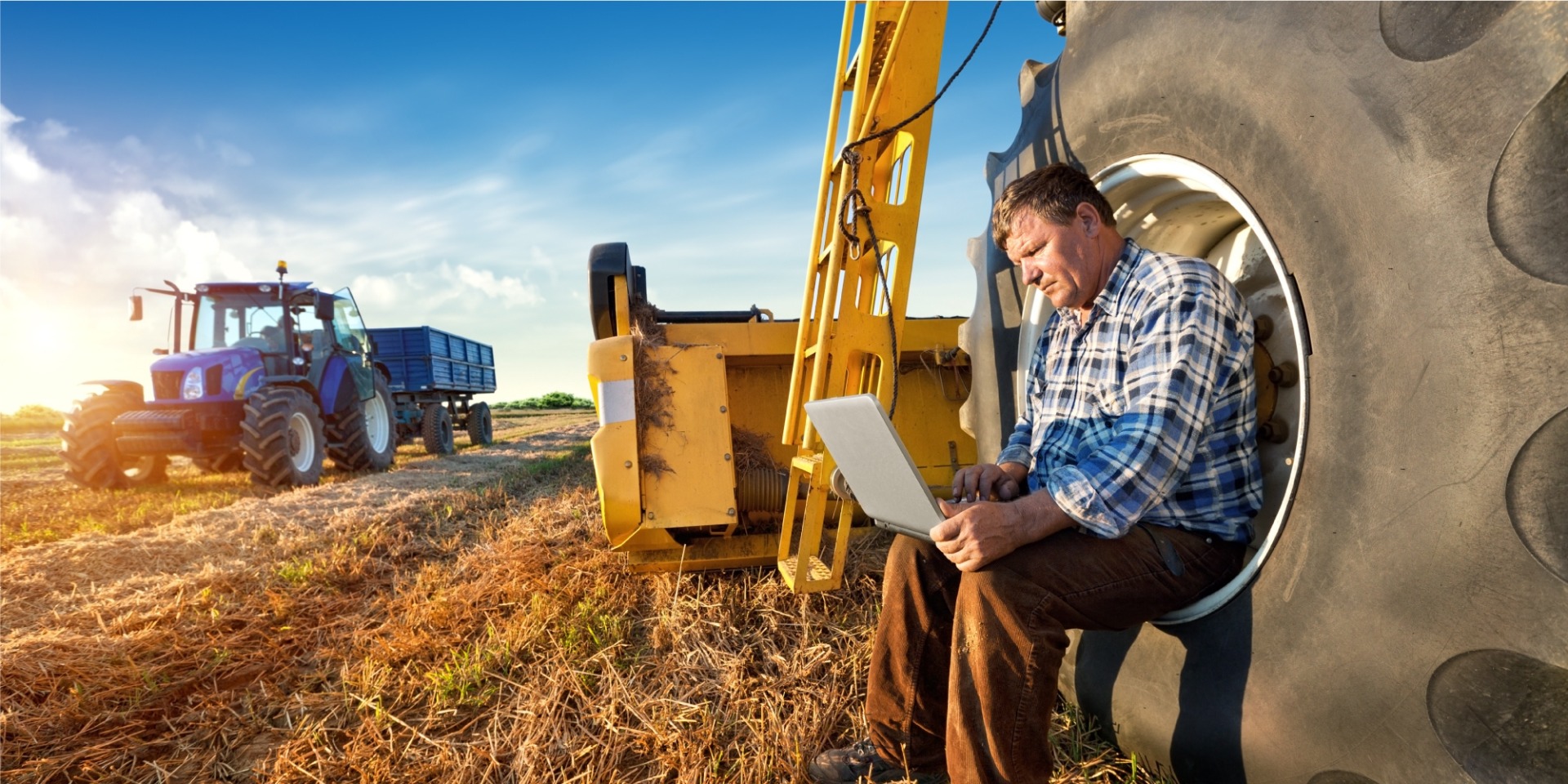Comments
- No comments found

Advancements in technology within the United Kingdom’s agricultural sector have streamlined tasks through automation, enhanced quality control and manufacturing processes, and strengthened the overall supply chain.
Of course, these developments have also put the industry at risk of online adversaries, forcing experts to re-examine and implement enhanced agriculture cybersecurity.

In the U.K., ramping up agriculture cybersecurity is the only way to avert vulnerabilities. Here are five reasons why these measures are critical.
The United Nations estimates the global population will reach 9.7 billion by 2050. As such, securing food systems worldwide is of the essence. The societal increase will raise the demand for food products, placing even greater pressure on farming and cultivation.
The U.K., in particular, highly depends on imported and domestic goods to provide for its citizens. Agriculturalists must prevent cyberattacks to strengthen food production and avoid supply chain issues, food deficits and higher prices.
Agriculture in the U.K. is plagued by social engineering and phishing scams, malware and ransomware attacks, and other sensitive data breaches. These acts can lead to malicious software entering systems, disrupting operations, and compromising data integrity. The attacks can infect control systems, like irrigation systems, or obtain sensitive information affecting workers, suppliers, distributors, and service providers. The implications of a cyberattack are most detrimental to farms.
These digital intrusions could significantly decrease productivity, resulting in numerous monetary losses and noncompliance penalties. Farmers must utilise advanced agriculture cybersecurity software across all systems to save their farms from financial ruin.
An increasing number of today’s producers employ advanced technology to connect various working procedures. For instance, farmers may link their irrigation equipment to harvesting and livestock management systems. In most cases, this capability helps increase productivity and yields.
A cyberattack could create significant performance issues within these systems, leading to ceased operations and crop losses. This could also lower food availability in some areas and cause price hikes on essential items.
In a 2022 survey by the Food Standards Agency, 90% of consumers were sure their food was safe to eat. Eighty-seven percent were especially confident in farmers. However, without robust agriculture cybersecurity, their confidence could greatly diminish if any breaches or incidents occur.
A cyberattacker may manipulate information regarding food quality, contamination and traceability. This public health risk may result in the distribution of unsafe food products, costly recalls and a negative public perception of producers and suppliers.
Members in the agriculture sector, along with players in other industries in the U.K. must adhere to numerous compliance regulations, such as food safety rules and the General Data Protection Regulation (GPDR). Otherwise, they could face sweeping fines and legal action.
Any business maintaining personal data — including farms harbouring employee or consumer information — must ensure the highest security, transparency and compliance measures. They must also demonstrate they have deleted information and files if requested. Failure to comply may result in a fixed £17.5 million fine or 4% of a company’s earnings the preceding year.
Naturally, if a cyberattacker compromises the food safety of distributed goods, the producers will also be responsible for accrued fines. Under the Food Safety Act of 1990, producers cannot place food on the market if it could cause harm or is otherwise unsafe for consumption.
Food business owners must also keep records of all goods, substances, livestock and interchanges of supplied goods. This ensures they can provide detailed information to officials if something must be recalled.
Enhanced agriculture cybersecurity will protect farm operations and maximise food security and safety across the U.K. These five measures are essential to the industry’s protection and should be adopted for ongoing resilience and success.
Agricultural equipment is the vital tool farmers need to reap, thresh, and winnow, reducing labor costs and speeding up efficiency. Farmers must integrate cybersecurity software into their agricultural equipment. Downtime from operational inefficiencies and cyberattacks could lead to precision issues and revenue loss.
Cybersecurity protections for all apparatuses could include a centralised data management system and remote monitoring to address real time issues, reduce human error through automation and ensure compatibility with several cybersecurity solutions.
According to a 2022 survey, 37% of chief information security officers worry most about cloud takeovers. Leaders in the agricultural sector use the cloud to store sensitive information, including real-time insights for informed decision-making and precision farming techniques and operations. They might also store employee information or details about suppliers and clients.
Food brands should implement role-based access control to programmes to protect themselves from potential attacks on their cloud systems. This means only necessary personnel are granted access to specific system points. Likewise, setting up multi-factor verification will require staff to go through two or more authentication measures for access.
Producers, suppliers and other parties within the food sector can ramp up agriculture cybersecurity by installing numerous software protections, including anti-virus applications, firewalls and an intrusion detection system to monitor for malicious activity.
It’s not enough to simply implement this software, though. They must also be updated regularly to ensure the most current and robust security measures.
A 2023 study showed 74% of cybersecurity breaches involved human error. Therefore, producers, suppliers and distributors must train workers to prevent and respond to such attacks.
Online training modules and simulated phishing scams are practical ways to ensure people know how to spot deceptive activity. Another helpful tactic is to prompt everyone to change their passwords regularly with uppercase and lowercase letters, numbers, and symbols. The greater their cyber hygiene, the less likely a breach will occur.
The key to protecting agriculture businesses from cyberattacks is to run regular risk assessments. This should entail reviewing all systems and operations for vulnerabilities and determining the likelihood of a breach.
Following up with a response plan is just as essential to address cyberattacks efficiently and promptly. The response plan must highlight communication channels, isolate and eradicate the malicious intent, and recover all systems. It must also include protocols for how teams can notify officials in case of food safety issues.
Protecting U.K. food systems and sensitive industry data is critical for optimal farming and agricultural operations, financial security and food safety. By enacting cutting-edge cybersecurity technologies and practices, food producers can rest assured they comply with stringent regulations, maintain their reputation for quality and circumvent public health crises.
Emily Newton is the Editor-in-Chief of Revolutionized. She is a science and technology journalist with over three years covering industry trends and research.
Leave your comments
Post comment as a guest